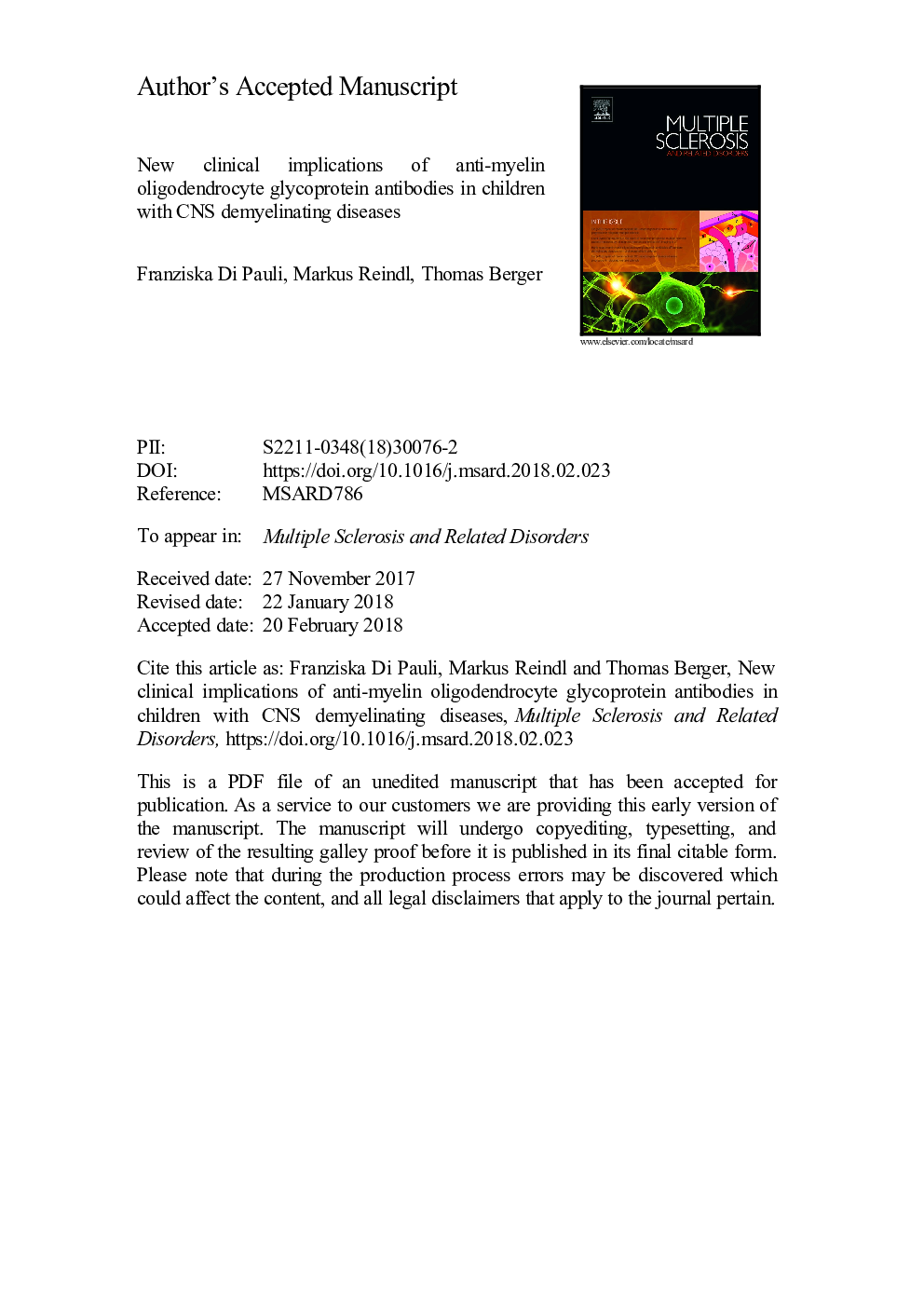| Article ID | Journal | Published Year | Pages | File Type |
|---|---|---|---|---|
| 8647359 | Multiple Sclerosis and Related Disorders | 2018 | 11 Pages |
Abstract
Acquired demyelinating CNS syndromes include a broad spectrum of clinical phenotypes and different entities can overlap. Therefore, differential diagnosis is still challenging. A humoral immune reaction against myelin oligodendrocyte glycoprotein (MOG) is present in a subgroup of these patients, particularly in children. Anti-MOG antibodies indicate a non-multiple sclerosis disease course. Indeed, early publications have suggested that anti-MOG antibodies argue for a monophasic course; recently an association with a high risk for recurrent non-MS disease has been shown. According new data, antibody analysis was included in a diagnostic algorithm for the diagnosis of acquired demyelinating CNS syndromes in children. Here, recent data from the implementation of anti-MOG antibodies in daily clinical practice are reviewed.
Keywords
Related Topics
Life Sciences
Biochemistry, Genetics and Molecular Biology
Genetics
Authors
Franziska Di Pauli, Markus Reindl, Thomas Berger,
